Commuters may have to adapt in response to sky-rocketing gas prices
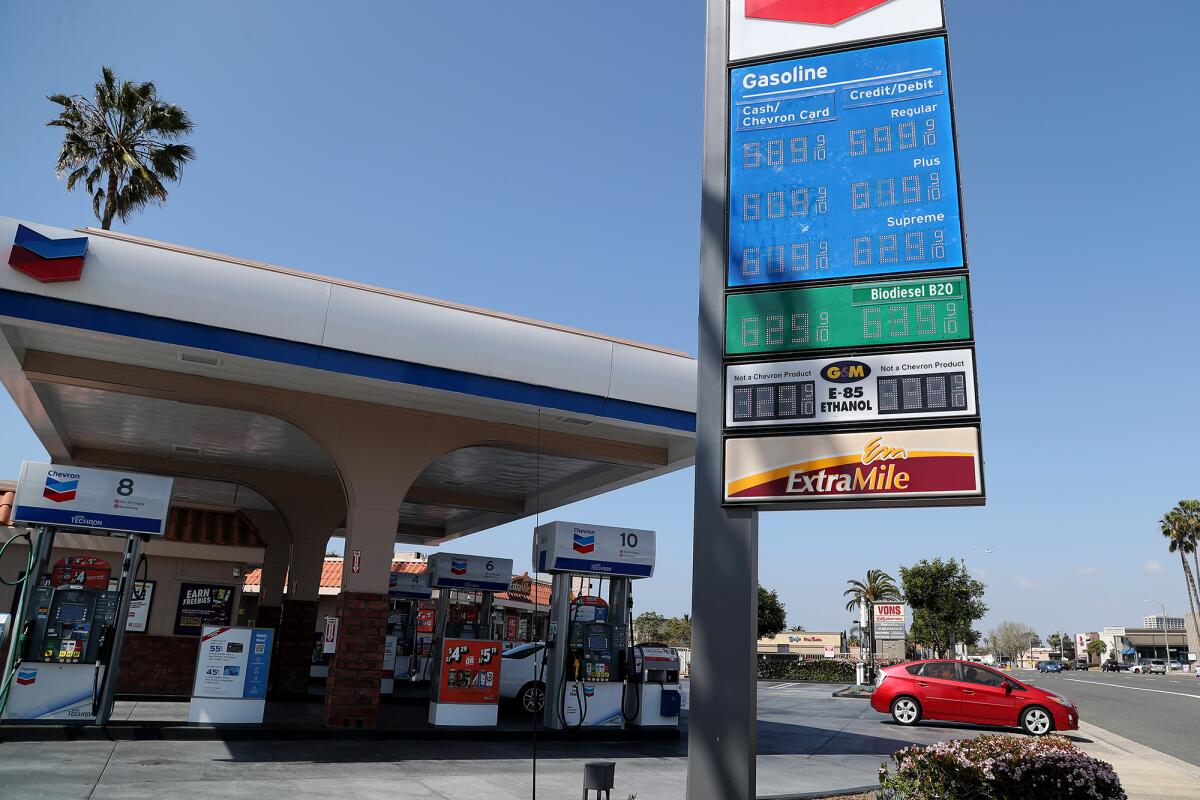
- Share via
The price of gasoline has skyrocketed over the last month, leaving motorists hurting at the pump.
Across the nation, the average price of gas had climbed to $4.318 as of Thursday, per data provided by the American Automobile Assn. That is a new national record, 59 cents higher than a week ago, said Doug Shupe, a corporate communications and programs manager for the Automobile Club of Southern California.
In Orange County, the average price of a gallon of gas has climbed to $5.757, an increase of 11.3 cents from the day before. The rate has continually increased for 19 straight days, setting records for gas prices in the county 31 times over the past 36 days, according to a City News Service report.
The past week has seen gas prices climb by 76.7 cents in the county. The price per gallon has gone up by $1.035 over the past month, and it is $1.929 higher than a year ago.
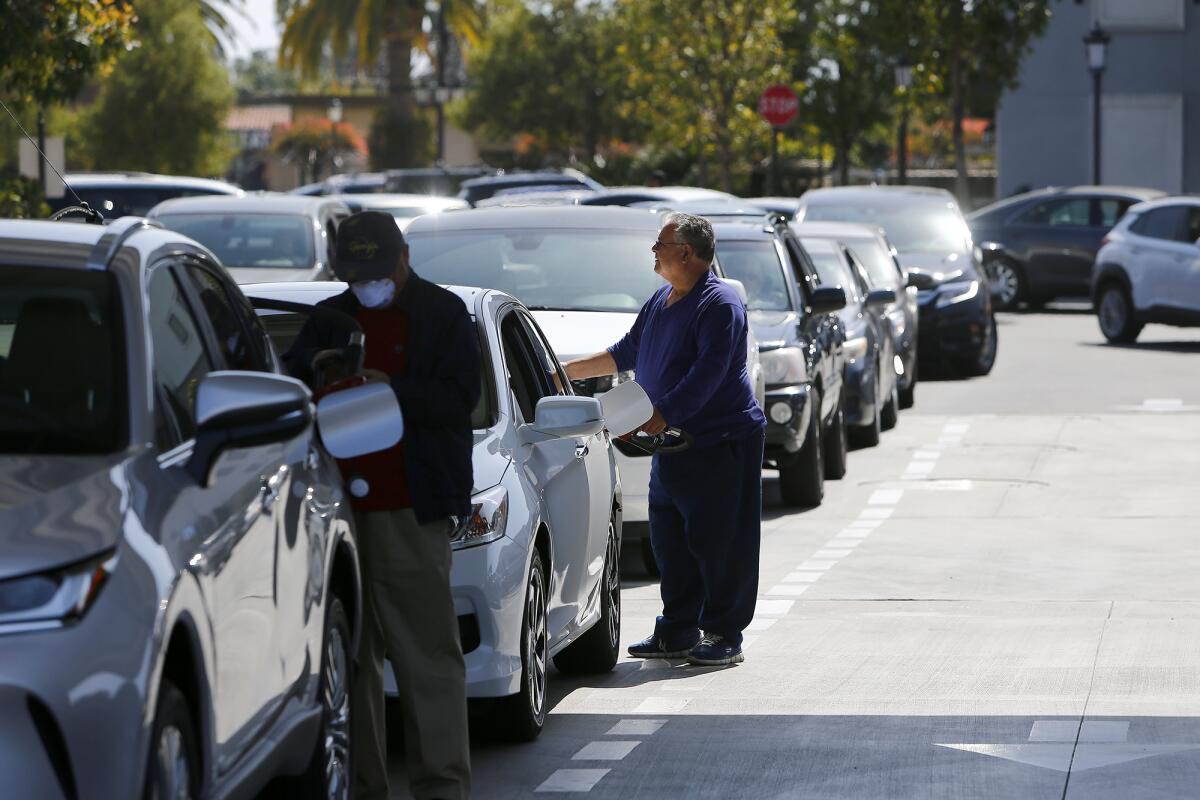
A survey conducted from Feb. 18 to 21 addressed rising gas prices with 1,051 interviews of adults over 18, Shupe said. The study had a 3% margin of error with a 95% confidence level.
“New survey data from AAA finds that two-thirds of Americans feel that gas prices were too expensive just a few weeks ago, and that was when the average price was $4.78 a gallon in Los Angeles, so now with it being well over $5.50 a gallon, many people have reached that tipping point.
“In fact, people surveyed, about 75% of them said that the $5 gas price would cause them to adjust their lifestyle to offset the spike at the pump, and among Americans who said they would make changes in response to higher gas prices, a majority of them — 80% — said they would opt to drive less.”
California’s average gas prices rose to $5.694, a new state record. The Golden State has the highest gas prices in the nation, and it is the only state to top $5 per gallon on average. Nevada has the second-highest gas prices at $4.872. Hawaii ranks third at $4.810.
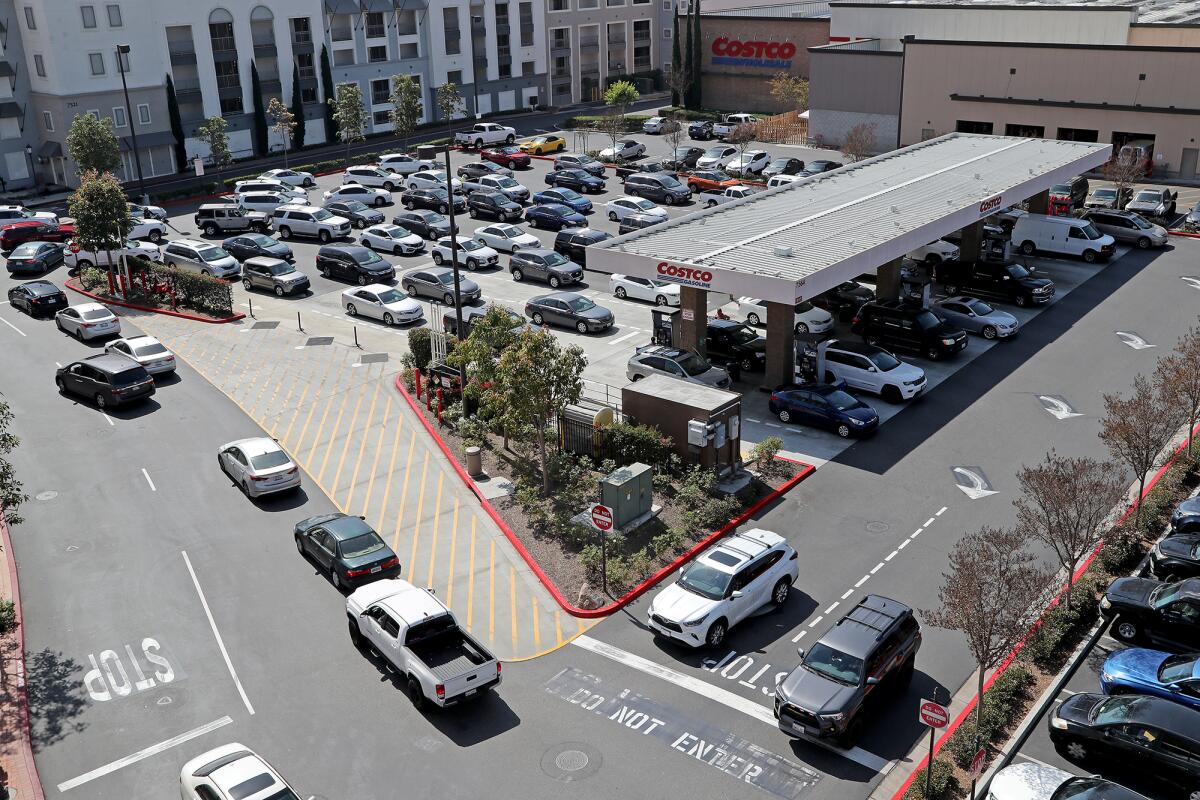
While record gas prices are forcing commuters to make tough decisions, Shupe added that people have traditionally budgeted for leisure traveling. With the COVID-19 pandemic having kept people at home for much of the past two years, he speculated that many will try to keep travel plans alive, even if they need to consider making adjustments such as taking shorter trips.
Drivers are being advised to maintain their vehicles, to get rid of extra weight from their cars, and to lay off the gas pedal to maximize fuel efficiency.
Other factors remain beyond the control of the commuter.
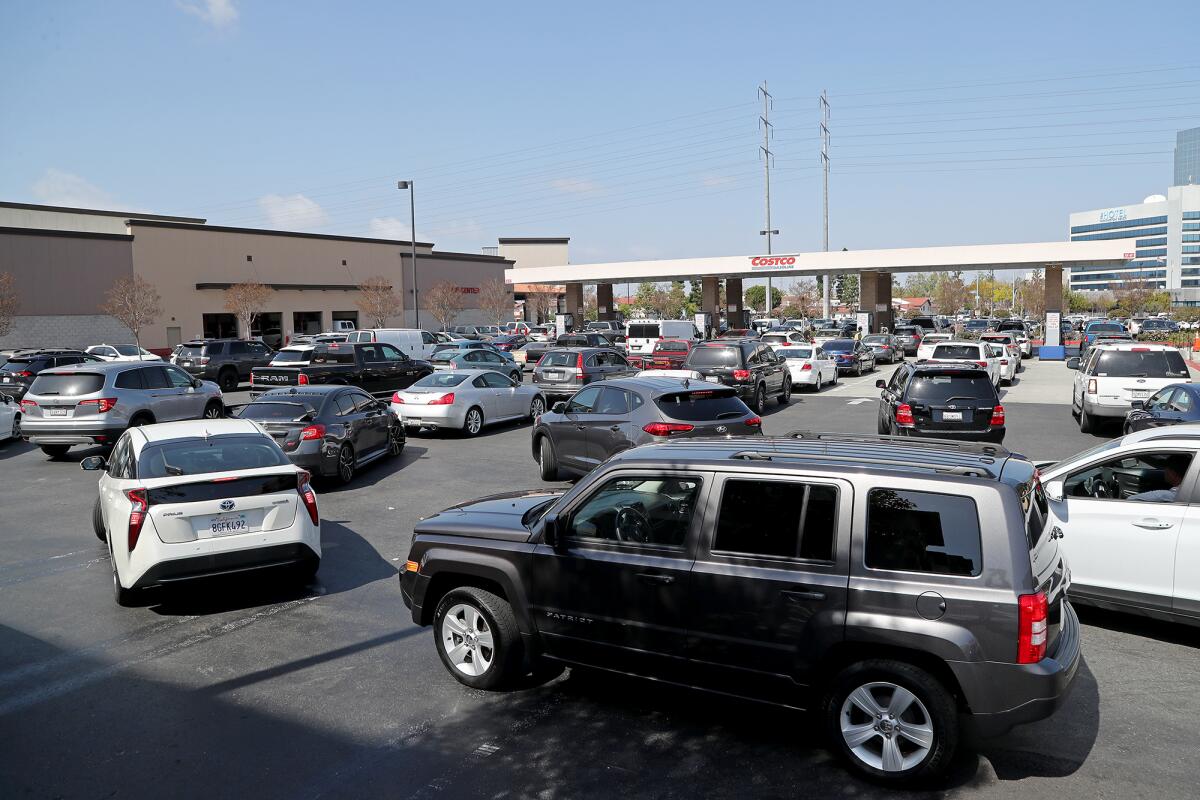
“The bottom line is the fluctuation in the gas prices really does depend on the crude oil prices, which make up about 50 to 60% of the price that we pay at the pump,” Shupe said. “We don’t know when this is going to end. It’s all going to depend on the situation that’s putting upward pressure on the prices, and that’s the situation between Russia and Ukraine.”
Hope for some relief may come in the form of oil prices trending downward.
“The United Arab Emirates announced [Wednesday] that they were going to start pumping more oil and that they were going to urge other OPEC countries to do the same,” Marie Montgomery, a public affairs specialist for AAA, said, adding that it was an encouraging sign to the market that more supply could be on the way.
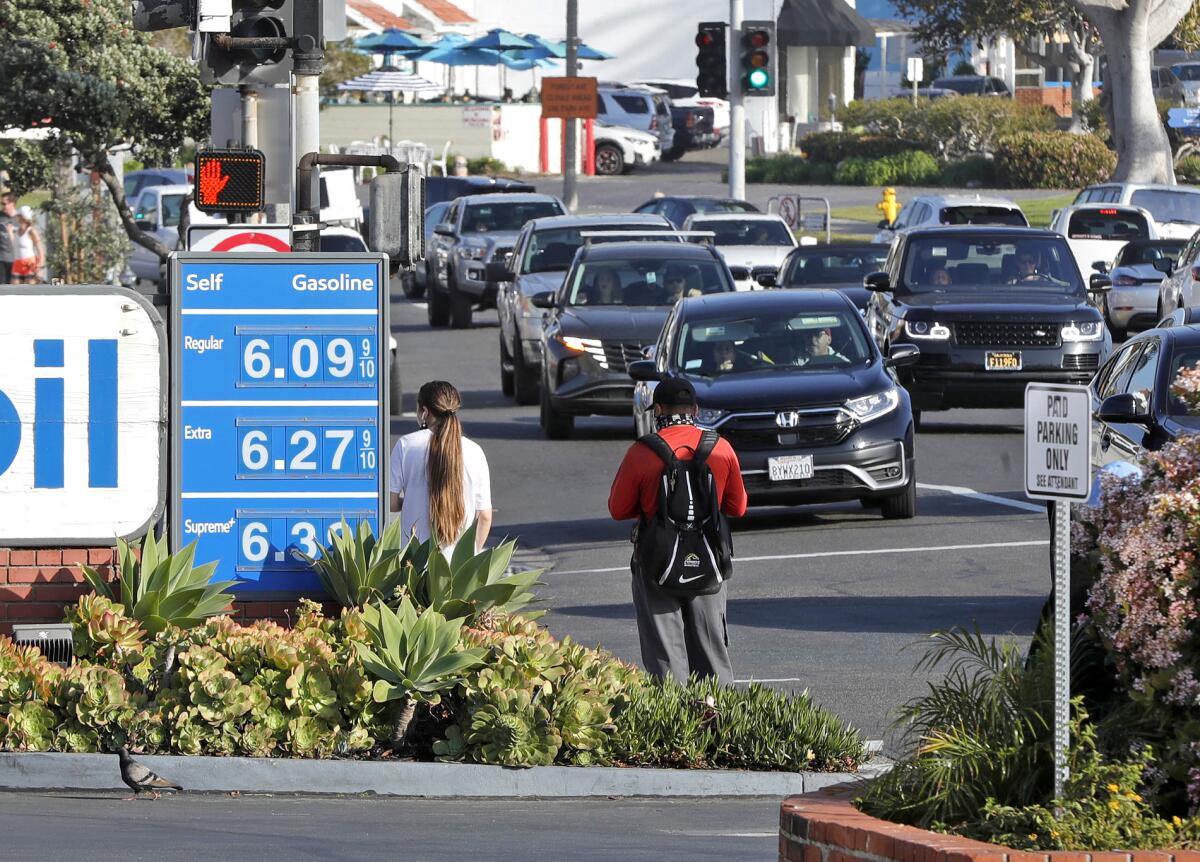
All the latest on Orange County from Orange County.
Get our free TimesOC newsletter.
You may occasionally receive promotional content from the Daily Pilot.




